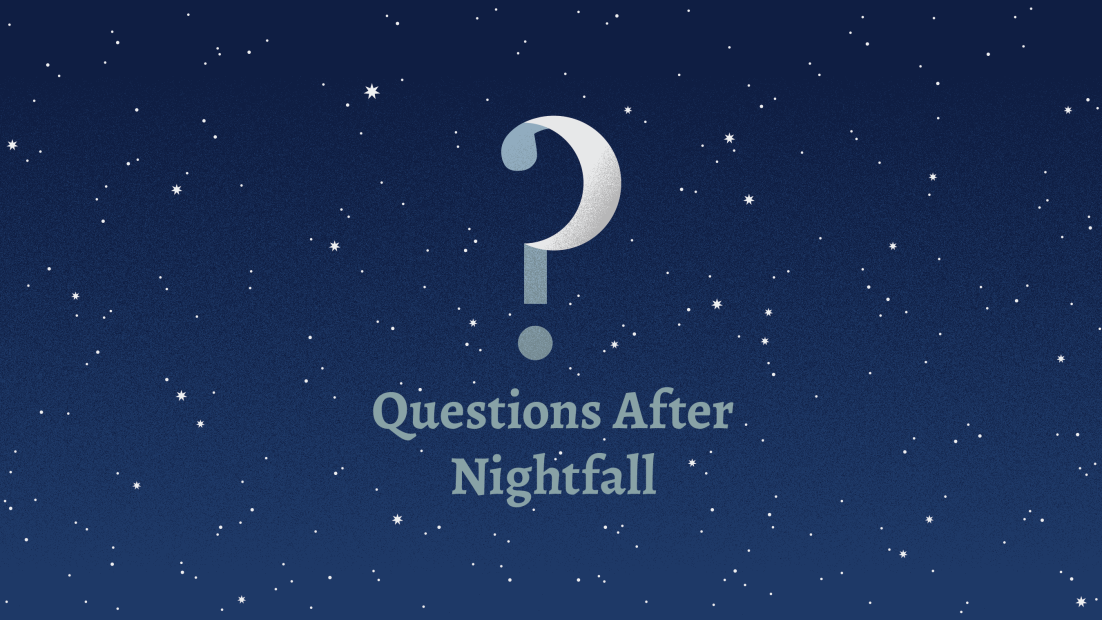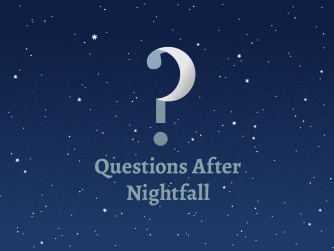Once again, Alan and Shawn are joined live by several visitors to the Prancing Pony for some “Ask Me Anything”-style unscripted questions! Topics include the representation of women in Tolkien’s works, SPBMI in the Third Age, Tom Bombadil, and more! Plus, corrections to our first The Lord of the Rings chapter discussion just keep piling up… and we breathe a sigh of relief over a welcome softball question about the enduring appeal of Monty Python.
Recommended Reading:
Tolkien, J. R. R. The Hobbit (Mariner Books, paperback)
Tolkien, J. R. R. (Christopher Tolkien, ed.) The Silmarillion (Mariner Books, paperback)




The podcast is magnificent.
The gender complaint was handled with admirable diplomacy and given a respectful share of thoughtful consideration, and shows what a class act you guys are. It was also of course a uniquely inane and unworthwhile segment. What are we to do with this complaint? Go back and change the source? Like the works less? The legendarium covers broad, universal, often abstract themes like humanity, mortality, community, corruption, creation, etc. It takes nothing but good faith and imagination to get rich personal meaning out of the works. It’s a fault of the reader to judge the work on its ability to speak directly and specifically to them in superficial terms of identity. There really was nothing to be said of it, and this was reflected in the diplomatic runaround that ensued. Basically, everyone sat there listening for 20 precious minutes, deprived of interesting discussion, so that a shallow call-out could be validated. Yes, there is a dearth of female leads in this and many works in the genre and in general. Yes this could be perceived as a problem on some level, which is unfortunate but entirely up to the reader. No, it’s not significant in the end, and no, most female fans accordingly do not get hung up on it.
Anyway, I enjoy and greatly appreciate your obviously hard work. Following the podcast avidly.
Thank you for your positive feedback about the podcast, Andrew, and we’re glad to have you listening. I’m certain that our guest who asked that question was simply trying to start a conversation, not to complain; and it just so happened that there wasn’t another woman on the show that night to offer any perspective, which might have helped us through our “hemming” and “hawing” a bit! But the good news is that we’ve gotten a lot of feedback from women (and men) about it, and the response has been really great. Most Tolkien fans agree that it’s those universal truths you mentioned that keep us engaged as readers, and that makes us find personal meaning in the work. Thanks for your thoughts on it.
I think you guys did a good job avoiding “mansplaining” the woman question in Tolkien.
As a female who loves Lord of the Rings and all of Tolkien’s work, I identify most with all the hobbits, which I think all readers obviously are supposed to, but I think I come at it differently.
As a race, the hobbits are overlooked and not considered by other races at all. Things are explained to them as if they know nothing on the subject (Man-splained or Elf-splained). They “surprise” everyone with their tenacity and their hidden strengths–everyone but Gandalf, who in my mind is the only male feminist in the entire lengendarium. They don’t surprise Gandalf much and re-read what he says to Eomer about Eowyn.
This resonates with me so strongly. The powerless hobbits show their power, showing they are capable of bravery and feats that Men (and men) can do, and feats they cannot do.
The hobbits are not Men, but they are as capable, as intelligent, and as brave as any Man, and they prove this throughout both LOTR and The Hobbit.
Thank you, Casey. I appreciate your thoughts on this, and I love the idea of Gandalf the male feminist. And yes! I know exactly the passage you’re thinking of from the Houses of Healing.
To provide a perspective to Emily’s question about inclusivity, I don’t read to “see myself”. I read to broaden my horizons, to see a story that is not my own, to breathe the air of a world foreign to mine, to lose myself in an experience that I will not or can not have. In my reading life I have been a whale, a demon, a President grieving his lost child, a twisted torturer, witches both fair and evil, Shakespeare’s wife and and the earthly incarnation of a blue skinned god. I’m a 60 year old straight white female but thanks to the generosity of authors like Tolkien I have also been so much more than that.
I must admit to agreeing with much of what Andrew had to say about your podcast, the nature of the complaint and your wonderfully patient and diplomatic response. One of my colleagues in the social sciences once told me “if you view everything through the same lens, you will always be able to find what you are looking for”, and I think she is correct in this intance.
As for you avoiding “mansplanning” the woman question; how would we know if you were? It seems to me that term is somewhat contrived and has some rather sexist and demeaning connotations associated with it. I think the intent was good humoured, but that kind of gender specific langage is best left out of respectful discouse. Thanks!